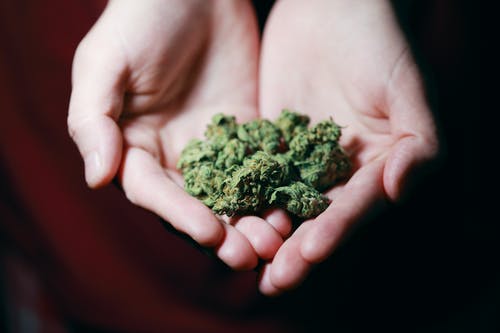Cannabis use can have dangerous consequences for teens.
Adolescent cannabis use are using cannabis in its various available forms now that access has been expanded. This can lead to dangerous side effects with parents and some practitioners being totally caught off guard. As of November 2021, 36 states and four territories had legalized medical cannabis, and 18 states, four territories, and Washington, DC, have begun to allow for legalized recreational use.
One of the noted side effects of the drug is that it can lead to paranoia, called cannabis-induced psychosis, which can land adolescents in the emergency room or a behavioral health facility. Some of the symptoms of psychosis include being “mentally checked out” and experiencing delusions, which can be life-threatening.

Adolescent cannabis use has been reported in teens as young 12 or 13, which could have unintended, life-altering side effects for a developing brain. Consequences to the brain might include difficulty thinking and problem solving, problems with memory and learning, impaired coordination and difficulty maintaining attention.
Use has also been associated with a decline in school performance, an increased risk of mental health issues, especially depression or anxiety (as well as psychosis), impaired driving and a potential for addiction. These dangerous side effects, however, seem to have been minimized in order to promote the newly legalized drug. Marijuana has largely been downplayed as a natural plant with little attention given to the dangers of use.
Research shows that about 1 in 6 teens can become addicted, according to the Centers for Disease Control and Prevention (CDC). This may be why it has historically been referred to as a “gateway” drug which can lead to other addictions down the line, especially if an individual is predisposed to a family history of addiction.
American Addictions Centers warns that, “When a person uses marijuana, the principal psychoactive chemical called tetrahydrocannabinol (THC) passes from the lungs (with smoking) or digestive tract (with edibles) into the bloodstream. The blood carries THC to the brain, where it acts on specific cannabinoid receptors. These receptors are predominantly found in areas of the brain associated with concentration, thinking, sensory and time perception, pleasure, memory, and coordination. Over activation of these areas by THC causes the ‘high’ that people feel. Marijuana use can impair functions such as attention, memory, and learning, and these effects can last up to several days beyond the time of actual ‘high’.”
“My work, as well as the work of a lot of other colleagues, has shown that younger kids do have more negative consequences from more regular cannabis exposure,” said Krista Lisdahl, PhD, director of the Brain Imaging and Neuropsychology Laboratory at the University of Wisconsin-Milwaukee and principal investigator in the National Institutes of Health’s ongoing Adolescent Brain Cognitive Development Study. “What we tend to see is mild to moderate reductions in verbal memory, complex attention, like cognitive control, problem solving, and psychomotor states.”
Lisdahl has found that cognitive function “starts to recover within a few weeks if use stops,” according to her research. That’s the good news.
Sources:
Not Your Parents’ Pot: Teen Cannabis Use Raises Red Flags


Join the conversation!